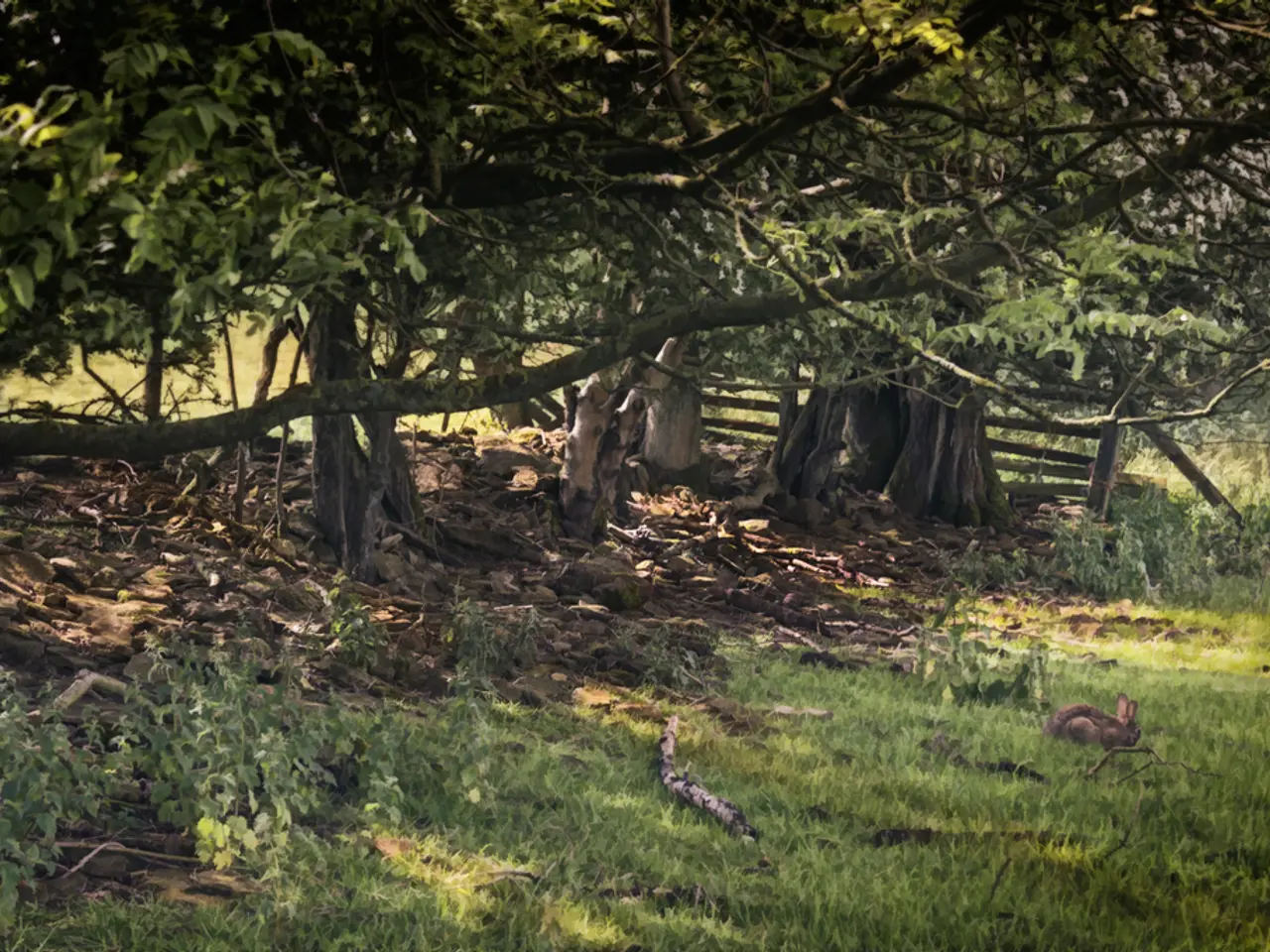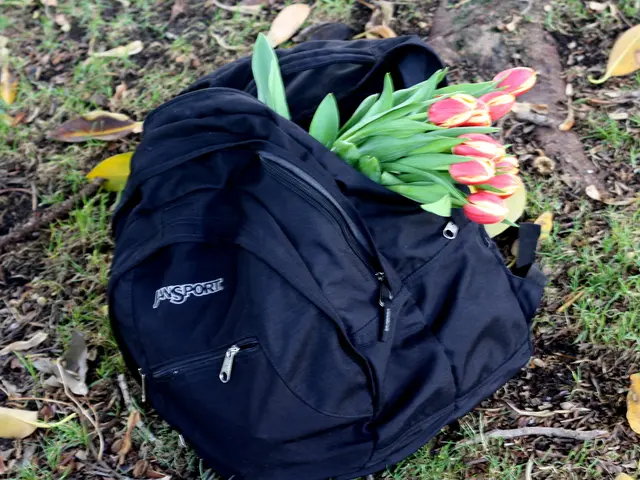Sustainable Gardening Guide: Summarized Insights and Four Potent Advantages
In today's world, adopting sustainable gardening practices is more important than ever. This method of gardening aims to benefit and support the current ecosystem and wildlife, offering numerous benefits for both our environment and local wildlife.
By choosing plants that thrive in local conditions, we can help boost local biodiversity. Sustainable gardening involves simple practices like avoiding insecticides and using soapy water to manage pests, as well as more complex measures like installing water butts and reducing patio space.
Conserving resources is a key reason for sustainable gardening. By reusing items at home, such as old clothes, cardboard, bottles, tin cans, and glass jars, we can help reduce waste output and the burden on local authorities. Additionally, reusing items can help reduce the fast fashion lifecycle and the production of new fibers.
Another important aspect is the preservation of our natural resources. By conserving grey water from the house for gardening purposes, we can save valuable resources like water and oil, which are depleting every day. Minimizing waste is another reason to practice sustainable gardening, as it helps reduce the environmental impacts like water pollution and greenhouse gas emissions.
Helping local wildlife is another reason to adopt sustainable gardening practices. Cutting hedgehog holes in fences and putting hedgehog houses in a garden can help these creatures survive. Including birdhouses and food in a garden can also help wildlife thrive. Installing bee and bug hotels can encourage more insects, while creating shady spaces for animals to escape from the sun can help them find refuge.
Adding ponds to a garden can promote diversity and encourage more wildlife. Using reclaimed wood for decking or border edging can help avoid deforestation. Steering clear of plants which are toxic to animals is important for wildlife gardening. Going rechargeable or hand-powered with gardening tools can reduce petrol usage.
Anyone can start gardening sustainably, regardless of the size of their outdoor space. To get started, you can compost food scraps and yard waste to enrich soil and reduce landfill waste. Use water-efficient methods such as drip irrigation, rainwater harvesting, and selecting drought-tolerant plants to conserve water. Employ organic pest management using companion planting, beneficial insects, and natural sprays instead of synthetic chemicals. Incorporate native plants that support local biodiversity and thrive with less maintenance. Recycle materials like containers and pallets to create garden structures and minimize waste. Conduct a site assessment to understand your garden’s conditions and plan sustainable landscaping accordingly.
Starting with these foundational steps fosters a healthy, eco-friendly garden and contributes to broader environmental sustainability goals. Key resources such as free local classes or online tutorials can provide step-by-step help in learning these practices. Using tools like carbon footprint calculators can help monitor and improve your garden's environmental impact.
In the face of deforestation, with WorldCounts.com reporting that 12 million+ hectares of forests have been removed in 2023, it's crucial that we all do our part to create a greener, more sustainable world. By adopting sustainable gardening practices, we can make a positive impact on both our local ecosystems and the global environment.
By incorporating native plants that support local biodiversity and using water-efficient methods like drip irrigation, you can contribute to conserving resources and reducing water pollution. Furthermore, installing bee and bug hotels, hedgehog houses, and birdhouses in your home-and-garden space can support sustainable-living and help local wildlife thrive.




